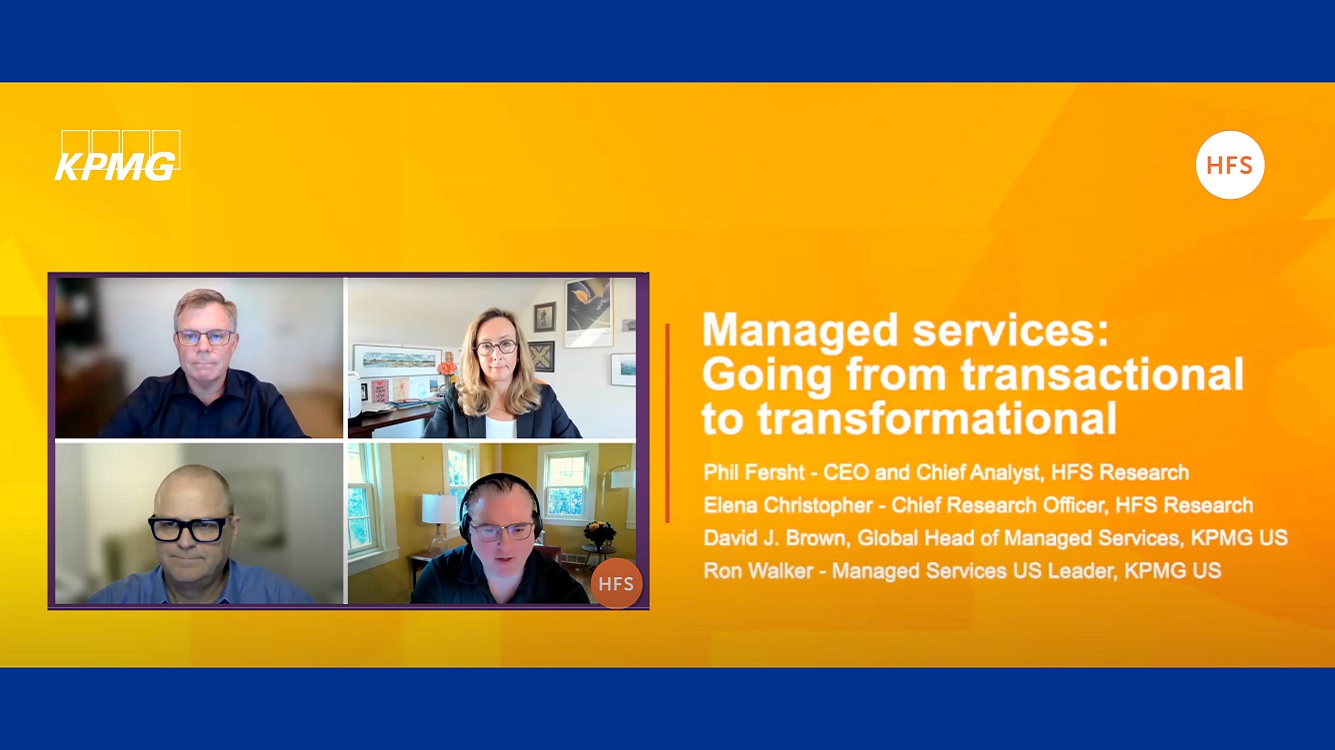Managed Services: A new harmony of people and technology
Companies see managed services as part of their 'playbook' for sustained transformation

The only constant is change, whether you’re prepared or not. Nowadays, progressive companies are using managed services providers to not just keep up, but to drive ongoing transformation as their business models constantly evolve to meet changing needs.
In a recent survey of over 1,000 business leaders around the world1, companies see managed services as part of their ‘playbook’ for sustained transformation:
73%
of companies have implemented managed services in at least some areas of the business.
62%
of respondents see managed services as clearly different from traditional outsourcing
Top goals include accessing new technology and driving strategic priorities.
Discover findings such as:
- Where companies are using managed services at scale
- Which functions are getting the most value from managed services
- Top tech in managed services
- Overcoming concerns in the way forward
How managed services can transform business outcomes
To get the most value from managed services, companies are seeking providers with capabilities beyond technology. Yes, advanced technologies are critical. But true transformation requires people and technology working in harmony—toward meaningful business outcomes, not just tech outcomes. They want managed services that are enabled by tech but led by strategy and knowledge—in digital, industry, and functional domains.
That’s why executives are choosing service providers based in large part on their expertise—particularly in specific industries, business processes, and data and analytics.
As companies move beyond cost cutting and labor arbitrage of traditional outsourcing, they are continually moving towards leading providers for high-value, knowledge-intensive processes. This reflects the move from a beyond the back-office legacy model of ‘your mess for less’ to judgment-intensive work—and not just in noncore processes. The work also includes core operations that historically were too mission-critical to transfer.
As the scope of managed services shifts to increase strategic value, the use of them has become a senior-level decision. In fact, more than half of respondents said the decision is made by C-level leaders, and another 17 percent said it’s made at the board level.
A new generation of modern services
As companies look at managed services in a new way, they’re implementing them more widely than in years past. The model is at a mature state of adoption with businesses moving beyond the back office, beyond cost savings, and beyond tech to drive strategic outcomes such as accelerated innovation, accurate forecasting, regulatory risk management, stakeholder trust, and agile adaption to market change.
Primary goals for adopting managed services
1
2
3
4
5
6
7
8
9
10
The future of managed services
In turbulent times, it’s not enough to just transform. To sustain competitive advantage, organizations must do it continually—which is why managed services have become a key part of the journey.
But tomorrow’s most effective operating models won’t be based on tech alone. Instead, as this study suggests, they will thrive at the intersection of innovation, expertise, and strategy.
Go from transactional to transformational with managed services
Footnote
- KPMG and HFS Research Managed Services Outlook 2023-2024
Dive into our thinking :
Tech is everything. But it's not enough.
Download PDFExplore more

Credible threats and managed services
Tapping a new model for financial crime compliance
Meet our team




